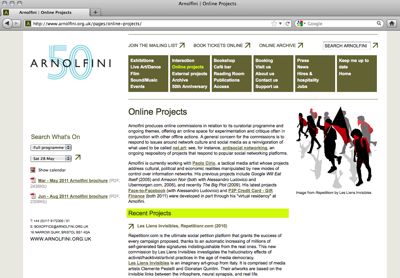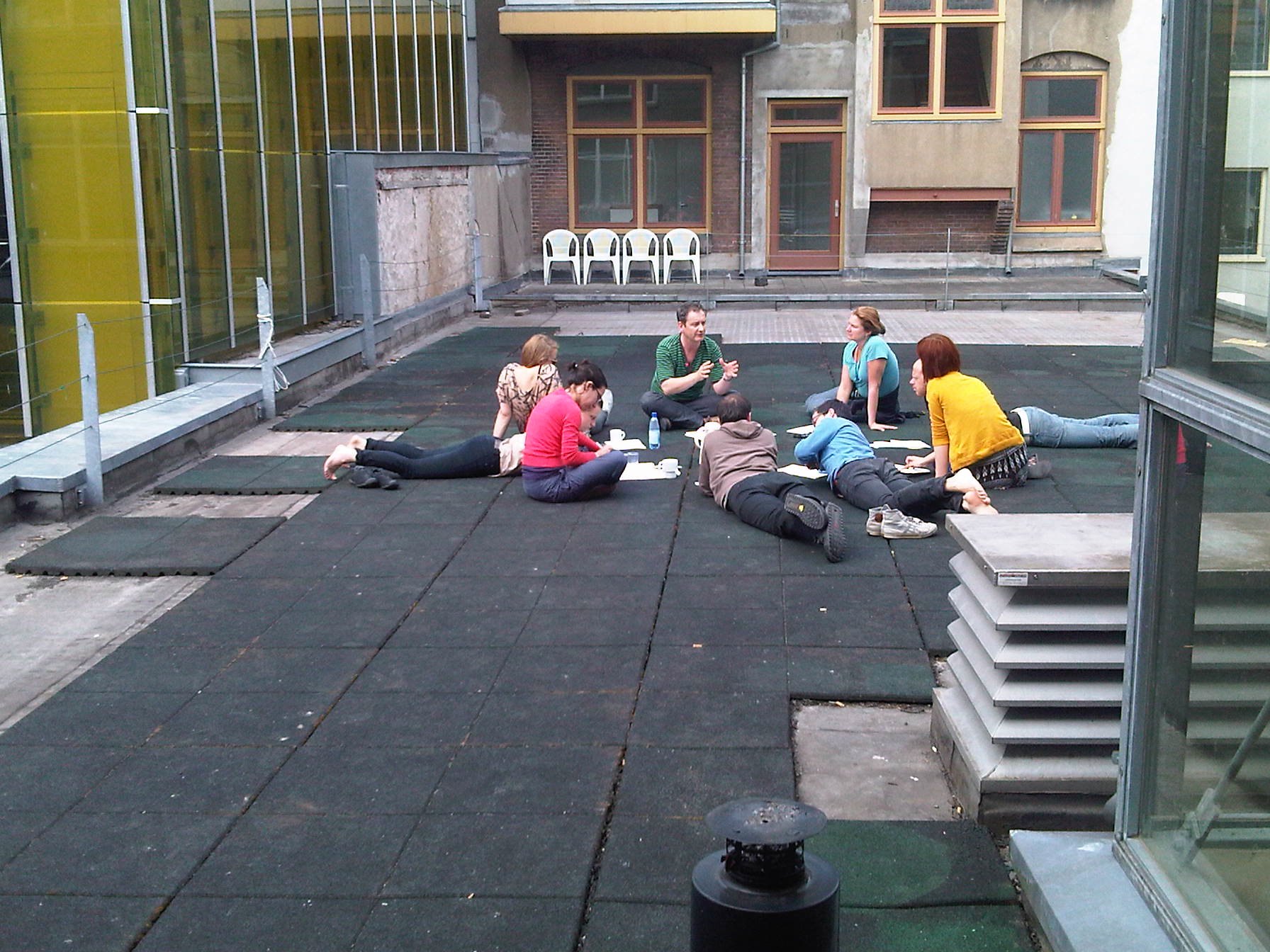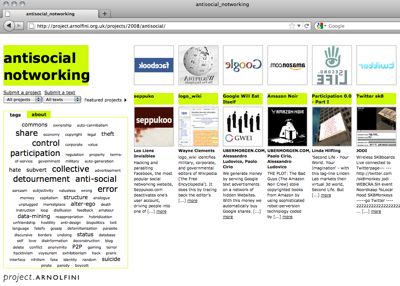Negotiating Equity first welcomed n.e.w.s. contributor and director of research at CIS (Centre for Internet and Society), Nishant Shah for Face-to-Face meetings with the students on Thursday. Later on that evening he gave a public lecture entitled We, The Cyborgs…
Drawing from contemporary and historical debates in Social Sciences, Artificial Intelligence, Robotics and Cybercultures, the talk looked at the models and processes of cyborgification to understand new ways by which human-technology interactions and relationships can be explored. Nishant framed the lecture around questions of the body, technology and regulation. With the emergence of pervasive and ubiquitous technologies of computation and communication, cyborgs, once the objects of futuristic writing and academic theorization, have become a part of our everyday life.
From prosthetic implants to virtual appropriations, different models of understanding the cyborgs are now available to us. What does this cyborgification of life, labour and language do to our existing notions of being human? We can break it down into two categories, machine centric and human centric, but not every interaction with technologies is cyborg. Although we are born with human centric technologies, we are becoming cyborgs and they shape the way to be human. According to Nishant, cyborgs subsume reality, allowing you to be more human than is possible. But not every interaction with technology is cyborg. The idea of a techno-social subject questions technology not as paradigms but as tools (gadgets). A cyborg does not talk in society, rather they are alone and unique, at the intersection of society. A cyborg does not look at science but technology. Nishant then gave three examples from Asia where the cyborg has moved on to the techno social and described their intelligibility and incomprehension.


Geoff Cox joined us on Friday for an all-day seminar entitled Strategies for the antisocial web. Presently he is a Researcher in Digital Aesthetics, part of the Digital Urban Living Research Center at Aarhus University (DK). Geoff focused on a range of projects that present critical strategies in response to the paradoxes of social media, its promises and its shortcomings beginning with ‘curating technologies’. Although these platforms facilitate unprecedented levels of sharing, the social relation is arguably produced in restrictive form, as personal and collective exchanges are further commodified.
Drawing on examples from his experience as Associate Curator of Online Projects, Arnolfini, Bristol (UK), he began with ‘Anti-social’ media, as an area of concern using examples from a number of online projects he developed for Arnolfini such as “Repetitionr by Les Liens Invisibles, a petition platform that generates fake signatures. unCraftism is another example within this project organized by Rui Guerra.
Some of his artistic collaborations include Notes Towards the Complete Works of Shakespeare, with cooperation from Elmo, Gum, Heather, Holly, Mistletoe and Rowan, Sulawesi Crested Macaques (Macaca Nigra) from Paignton Zoo Environmental Park (UK). It was produced in response to the familiar idea that if an infinite number of monkeys are given typewriters for an infinite amount of time, they will eventually produce the complete works of Shakespeare. It was translated to a computer environment, producing live updates published on the web, alongside a webcam view of the production scene showing the creative activity in its fuller context. Geoff also serves as treasurer of the Museum of Ordure, an on-going collaboration with Stuart Brisely and Adrian Ward that will present its latest project this summer.
‘Coding publicness’ was framed by examples from Anti-thesis.net, which is Geoff’s workspace that maps out his practice, projects and research. The project Data-Browser, in collaboration with Plymouth University, UK and published by Autonomedia, presents critical texts that explore issues at the intersection of culture, technology and society.


These initiatives also relate closely to the work of KURATOR, a research and curatorial platform that has a special interest in the parallels between the ways that objects are assembled in technical systems and in curatorial practices. The symposium organized together with DARE at the beginning of this year in Aarhus, Public Interfaces, is ongoing research around interface criticism, the aim is to broaden issues to encompass the development of urban interfaces, and the changing concept of the ‘public’. Finally, Geoff emphasized how new cultural forms that emerge from coding cultures allow for a reappraisal of the concept of the ‘public’, making it open for further modification and reuse.
Joasia Krysa then joined us in Skype from Plymouth University, UK, where KURATOR is based to explain her past practice at KURATOR which has a particular interest in the emerging discourse and practice that links curating with programming, software and networks. Silicon Dreams: Art, Science & Technology in the European Union focused on the currency for transdisciplinary practice across Science, Technology and Art and was co-ordianted by Joasia. After the net, 3.0 explores the paradoxical development of the Internet by presenting artworks that highlight key developments from cybernetics to free and open source software, and social networking platforms. Joasia then explained the curatorial premise of the forthcoming Documenta 13, in which she will participate as one of the curatorial ‘agents’ and presented some of her research.
At the end of the afternoon we discussed Geoff’s text from 2010, Virtual Suicide as Decisive Political Act. Focusing on social media and the way subjectivity is captured, virtual suicide ‘stands as the stubborn refusal to operate under intolerable conditions of service and affirms the possibility of creative autonomy over work and life.’